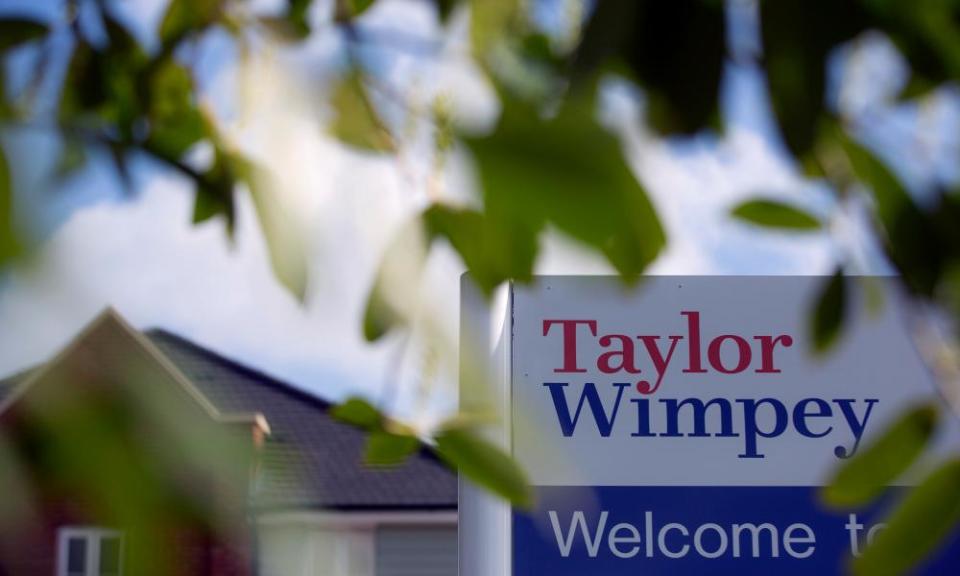Taylor Wimpey: most buyers in ground rent scandal will be able to get new deals

The “substantial majority” of Taylor Wimpey homebuyers caught in the ground rents scandal will be able to switch to less onerous leasehold contracts, the housebuilder has said after it set aside £130m to convert the controversial leases.
In an upbeat trading statement that contrasted with a more pessimistic report by its rival Persimmon last week, Taylor Wimpey said sales per outlet had risen, and that it expected to be able to hand shareholders £500m in dividends in 2018.
The figures represent a remarkable turnaround for a company that faced collapse as recently as 2009, when it was forced to refinance £2.5bn in debts and tap shareholders for £533m in cash.
Taylor Wimpey said demand for housing remained high, supported by the government’s help-to-buy scheme, and that it had added 13,700 plots to its UK landbank, now 107,000 strong.
The chief executive, Pete Redfern, said the £130m assistance scheme offered to leaseholders in April – the company has consistently argued it is not compensation – should result in a “substantial majority” of buyers switching to less onerous contracts in which increases in ground rent are linked to inflation.
“We have now reached agreements with freeholders to enable the significant majority of our customers with a 10-year doubling lease to convert their ground rent terms to an RPI-based structure. These agreements address any concerns about the saleability and mortgageability of these properties,” Redfern said.
Buyers of some new-build houses from Taylor Wimpey and other major developers were shocked to discover they had become tangled in fast-rising ground rent clauses where the annual bill would run to £10,000 or more within 30 to 40 years, leaving some virtually unsaleable.
In July, the government announced it would ban leasehold on future new-build homes, and cut ground rents on new flats to as low as zero. But those already trapped in spiralling ground rent contracts said the nightmare would continue until developers were forced to pay compensation.
Campaigners say the Taylor Wimpey assistance scheme still leaves buyers in the clutches of an independent ground rent company, facing what they allege are “exorbitant charges”.
Apart from the annual ground rent charge, companies that buy freeholds can also demand that homeowners pay them a fee of hundreds of pounds every time they remortgage, with some requesting a fee if the householder wants a pet.
Bill Gresty bought a Taylor Wimpey flat in 2007 but called the builder’s assistance deal a “publicity stunt”. His £125,000 flat in Bolton carries a £500-a-year ground rent, and was in a contract where it would double.
He said: “When Taylor Wimpey pulled the publicity stunt of having put aside £130m, I contacted them, they said that on an informal basis they would change the doubling clause to one of RPI which in my opinion could be worse, depending on inflation.
“They also refused to put the ground rent back to £250. I declined their offer. I then joined the National Leasehold Campaign and have gained a little comfort by being part of an organisation that all have similar aims.”

 Yahoo Finance
Yahoo Finance 